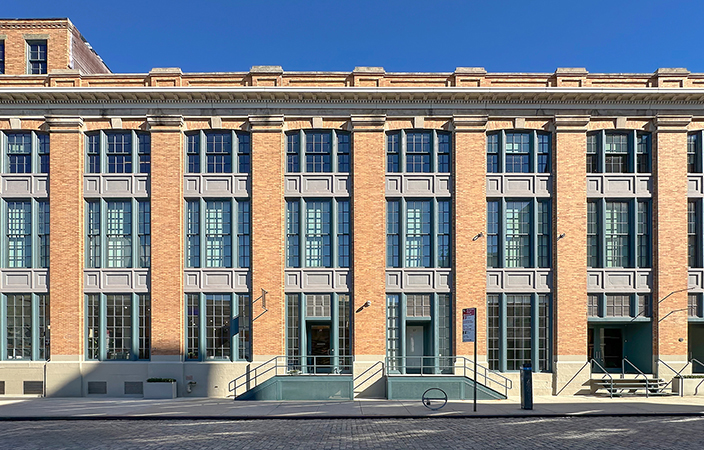An attorney discusses renovations in condominium units – Understanding the basics - by C. Jaye Berger

Offices of C. Jaye Berger
Many of the new residential buildings which have been constructed in recent years are condominiums. Given that fact, it is increasingly important for anyone thinking of buying a condominium unit and for anyone already living in a condominium to understand the unique aspects of the make up of a condominium association before embarking on a renovation.
In order to understand this subject, one must understand some of the basics of what a condominium is and how it operates. The condominium is administered mostly under its by-laws, which set forth the rights and obligations of the unit owners with respect to their own units and the condominium’s common elements, the declaration and the offering plan. The board of managers enforces the by-laws, rules and regulations on behalf of the unit owners.
A condominium unit owner has a “fee-ownership interest” in the unit. Sometimes it is referred to as a hybrid form of ownership, since each unit owner holds an interest in his unit and its appurtenances, as they would in a house, and an undivided interest in the common elements of the condominium. That in turn means that the unit owner does not have a lease for the premises and is not protected by the warranty of habitability, as one would be in a rental apartment. The unit owner and the condominium do not have a landlord/tenant relationship. Therefore, the condominium by-laws, house rules and the declaration are the key governing documents for the building.
The common elements are required by statute to remain undivided and may not be partitioned or divided. This is why you can purchase hallway space in co-op apartment buildings, but cannot do so in condominiums. These basic principles can become confused when the sponsor, for example, allows something to be done which diminishes or takes away from a common element, such as allowing a unit owner to install something which takes up space in a common element or sells it.
Most by-laws allow the condominium to have an alteration agreement for anyone wanting to renovate. This gives the condominium, a little, but not much oversight of such work. One of the first things anyone wanting to renovate should do is see if there is such a document and read it thoroughly. One unit owner had not read the alteration agreement and was surprised to learn that she was required to complete the project within 60 days, when she knew her renovation would take longer and there would be per diem charges for late completion. At my suggestion, she contacted the Board to discuss this and was allowed more time.
Much like in co-ops, decisions made by the board of managers are reviewed by the courts in accordance with the business judgment rule. In other words, courts do not want to substitute their judgment for that of the board of managers, if: (1) the action taken by the board has been made for the purposes of the condominium; (2) it is within the scope of the board of manager’s authority and (3) was made in good faith in executing their obligations under the by-laws. In some instances, a court might find that the board of managers or a sponsor did not act within the scope of his authority when it approved something and may then nullify or void it.
A big area in which conflicts arise is when unit owners engage in renovations which intentionally or inadvertently use or encroach on portions of the “common elements.” Since common elements belong to all the unit owners, any change to them requires that all unit owners consent. Any installations encroaching on common area, such as HVAC equipment and fences on the roof or roof decks, may be a violation of both the applicable real property law and the condominium documents. This can result in complicated litigation seeking injunctions to remove the equipment and damages.
An alternative that sometimes occurs is to give a “revocable license” to allow an area to be used for some limited purpose, usually with some compensation to the building. This can be controversial when the license is revoked.
In addition, no changes can be made in the size and number of the units or their percentage of common interest without amending the declaration. This would apply when two units are purchased and combined. Sometimes condominiums “allow” the units to be informally joined, to try to avoid having to amend the declaration and to allow them to be sold separately at a future date, but this is not the law on this subject.
Sometimes a unit owner purchases a unit or space that had a different “use” in the building, such as a medical unit being changed into some other use. That would require a change in the building’s certificate of occupancy, which may or may not occur. Consent would be needed from the board of managers; however, sometimes that consent is not obtained for some reason and the change in use is simply made. This can lead to orders to show cause to stop the renovation. The NYC Department of Buildings may not know from the application that the building is a condominium and requires signature by the board of managers. Some by-laws require board approval of documents which need to be filed with public agencies for renovations before obtaining permits. In the same vein, unit owners should also be required to close out their permits upon completion of the work, subject to the condominium rules and bylaws. Open permits can create problems for other unit owners and the sponsor.
It is always recommended that buildings and unit owners have knowledgeable legal counsel review the alteration policies and agreements, if any, and the by-laws before work is commenced. Sometimes the by-laws need to be updated and revised.
C. Jaye Berger, Esq, is the principal, Law Offices C. Jaye Berger, New York, N.Y.
SABRE coordinates sale of six properties totaling 199,845 s/f


Lasting effects of eminent domain on commercial development - by Sebastian Jablonski

Behind the post: Why reels, stories, and shorts work for CRE (and how to use them) - by Kimberly Zar Bloorian

Strategic pause - by Shallini Mehra and Chirag Doshi








.jpg)
.gif)
.gif)